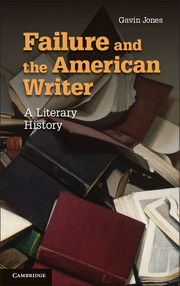Book contents
- Frontmatter
- Dedication
- Contents
- List of Illustrations
- Acknowledgments
- Introduction
- Chapter 1 Falling for Edgar Allan Poe
- Chapter 2 Herman Melville in the Doldrums
- Chapter 3 The Disappointments of Henry David Thoreau
- Chapter 4 Stephen Crane’s Fake War
- Chapter 5 The Double Failure of Mark Twain
- Chapter 6 Sarah Orne Jewett Falling Short
- Chapter 7 The Faltering Style of Henry James
- Conclusion
- Notes
- Index
Chapter 1 - Falling for Edgar Allan Poe
Published online by Cambridge University Press: 05 June 2014
- Frontmatter
- Dedication
- Contents
- List of Illustrations
- Acknowledgments
- Introduction
- Chapter 1 Falling for Edgar Allan Poe
- Chapter 2 Herman Melville in the Doldrums
- Chapter 3 The Disappointments of Henry David Thoreau
- Chapter 4 Stephen Crane’s Fake War
- Chapter 5 The Double Failure of Mark Twain
- Chapter 6 Sarah Orne Jewett Falling Short
- Chapter 7 The Faltering Style of Henry James
- Conclusion
- Notes
- Index
Summary
“Who, and what, has not failed?” asked the American novelist Catharine Maria Sedgwick in response to the devastating financial Panic of 1837. What was left standing, she wondered, in a society where “the banks have failed, and the government has failed – every body, and every thing has failed!” To find an answer, Sedgwick was forced to look away from society altogether. “The moon has not failed,” she wrote, perhaps only half in jest. Morning, the sun, air, and clouds have not failed, and neither have the pillars of the domestic world that Sedgwick wrote about in her popular novels: the kindness of domestic service, the love of parents, the fidelity of a true-hearted wife. Books stood tall, thought Sedgwick, amid the economic ruins of her society. “These exhaustless magazines of happiness, these silent ministers to the soul, these successful missionaries to all parts of the civilized world, have not, and cannot fail!”
But fail they did. The careers of our classic writers were marked by the experience of failure in a literary market that seemed to value what Nathaniel Hawthorne called “trash.” Sedgwick was right that her era’s more popular works of literature responded to social failure by administering an emotional salve. From the late 1830s to the Civil War, for example, a flood of sentimental, domestic fictions sought to save the ethic of capitalism from the ruins of economic turmoil. These novels were geared to resolve the contradictions of capitalism and to assuage the ideological fears of the middle class, as numerous critics have argued. Nobody but the literary historian today reads such sentimental offerings as Hannah Lee’s Three Experiments of Living (1837) or Elinor Fulton (1837), perhaps because of the historically localized and moralistic way that these texts attempt to teach readers to survive a financial panic. But to assume that canonized literary figures did not write about the Panic of 1837, as does a recent study of reform writing, is to miss the deeper ways that writers could respond to questions of finance and failure – at the level of form and affect rather than subject matter and theme.
- Type
- Chapter
- Information
- Failure and the American WriterA Literary History, pp. 17 - 34Publisher: Cambridge University PressPrint publication year: 2014



